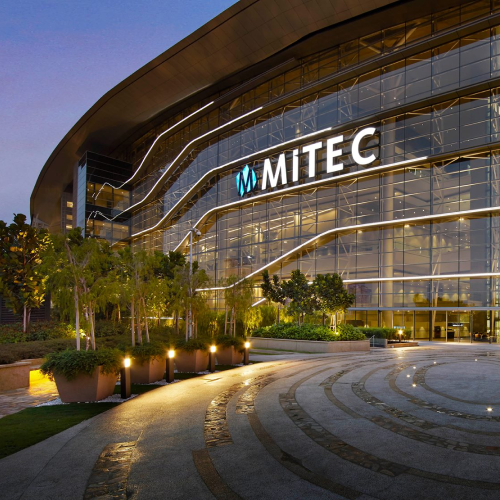With the increasing reliance on cloud computing services, businesses are faced with the decision of selecting the right cloud security model that meets their specific requirements. Cloud security models can be broadly categorized into three types: public, private, and hybrid cloud security models. Each of these models has its advantages and disadvantages, and businesses must carefully weigh these factors before making a choice.
Public Cloud Security Model
The public cloud security model refers to cloud computing services provided by third-party cloud service providers, such as Amazon Web Services (AWS), Microsoft Azure, and Google Cloud Platform (GCP). These providers offer a range of services, including infrastructure as a service (IaaS), platform as a service (PaaS), and software as a service (SaaS).
Advantages of Public Cloud Security Model
One of the most significant advantages of the public cloud security model is the cost-effectiveness it offers. Public cloud providers operate on economies of scale, which means that they can provide services at a lower cost than an individual organization can achieve on its own. Additionally, the public cloud offers flexibility, scalability, and the ability to rapidly deploy and scale up or down based on business needs.
Disadvantages of Public Cloud Security Model
The biggest concern with the public cloud security model is the lack of control over data and infrastructure. When an organization uses public cloud services, they rely on the cloud provider to ensure the security of their data and applications. This means that the provider has access to the organization’s data, which can be a significant security risk if not managed correctly. Additionally, public clouds can be less secure than private clouds, as they are accessible to a much larger user base.
Private Cloud Security Model
The private cloud security model refers to cloud computing services that are dedicated to a single organization. The organization can either host the private cloud themselves or use a third-party provider to manage the infrastructure.
Advantages of Private Cloud Security Model
The primary advantage of the private cloud security model is the level of control it offers. Organizations have complete control over the infrastructure and data, which makes it easier to customize security policies to meet their specific requirements. Additionally, private clouds can be more secure than public clouds, as they are not accessible to other organizations.
Disadvantages of Private Cloud Security Model
The main disadvantage of the private cloud security model is the cost. Building and maintaining a private cloud infrastructure can be expensive, especially for small and medium-sized businesses. Additionally, private clouds offer less flexibility and scalability than public clouds, as organizations must invest in their own infrastructure.
Hybrid Cloud Security Model
The hybrid cloud security model combines elements of both public and private cloud security models. In a hybrid cloud, organizations can use a combination of public and private cloud services, depending on their specific needs.
Advantages of Hybrid Cloud Security Model
The hybrid cloud security model offers the best of both worlds. Organizations can take advantage of the cost savings and flexibility of the public cloud while also maintaining control over their critical data and applications. Additionally, hybrid clouds can be customized to meet specific security requirements, and organizations can choose which data and applications to store on the public and private clouds.
Disadvantages of Hybrid Cloud Security Model
The main disadvantage of the hybrid cloud security model is the complexity of managing both public and private cloud environments. Organizations must carefully manage data and application placement and ensure that security policies are consistent across both environments. Additionally, the cost of a hybrid cloud can be higher than that of a public or private cloud, as organizations must invest in both environments.
Choosing the right cloud security model is a critical decision that can have significant impacts on an organization’s security, cost, and flexibility. While public clouds offer cost savings and flexibility, they can be less secure than private clouds.
Build a Future Team aggregates a legion of business, impact, and skill partners to establish a new benchmark for social impact in the digital era across Southeast Asia. We are poised to impact 10 million lives through digital workforce transformation.

Lorem ipsum dolor sit amet, consectetur adipiscing elit. Ut elit tellus, luctus nec ullamcorper mattis, pulvinar dapibus leo.

Lorem ipsum dolor sit amet, consectetur adipiscing elit. Ut elit tellus, luctus nec ullamcorper mattis, pulvinar dapibus leo.

Lorem ipsum dolor sit amet, consectetur adipiscing elit. Ut elit tellus, luctus nec ullamcorper mattis, pulvinar dapibus leo.

Lorem ipsum dolor sit amet, consectetur adipiscing elit. Ut elit tellus, luctus nec ullamcorper mattis, pulvinar dapibus leo.

Lorem ipsum dolor sit amet, consectetur adipiscing elit. Ut elit tellus, luctus nec ullamcorper mattis, pulvinar dapibus leo.

Lorem ipsum dolor sit amet, consectetur adipiscing elit. Ut elit tellus, luctus nec ullamcorper mattis, pulvinar dapibus leo.

Lorem ipsum dolor sit amet, consectetur adipiscing elit. Ut elit tellus, luctus nec ullamcorper mattis, pulvinar dapibus leo.

Kompleks MITEC KL Metropolis,
8, Jalan Dutamas 2,
Segambut, 50480 Kuala Lumpur,
Wilayah Persekutuan Kuala Lumpur